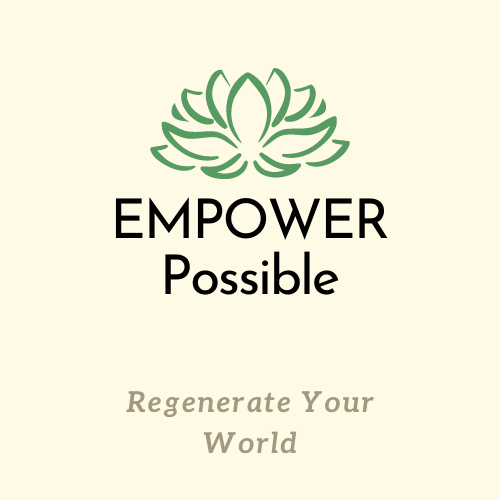Dear Empowered Reader,
As we transition into Fall, it's a great time to consider turning over a new leaf and developing a fresh perspective on well-being.
Are you struggling to overcome burnout despite focusing on your well-being? In this special edition of the Empower Possible newsletter, we explore the article titled "Why Yoga Won't Cure Burnout“ by Kathleen Schulz.
I practice yoga on a daily basis and believe individual well-being practices are an essential part of life (I am more than a little biased) AND individual well-being practices are not enough to overcome systemic issues. This newsletter looks to explore this topic utilizing yoga to represent individual responses to burnout recognizing yoga for one person might be meditation for another or spending time in nature. While these are all part of well-being these practices along ”can’t cure burnout”. Let's review the article's key takeaways.
Understanding Burnout: Looking Beyond the Surface
The article begins by addressing the common misconception that yoga is a cure-all for burnout. While yoga undoubtedly offers several physical and mental benefits, burnout is a complex issue that requires more than one practice to address. Burnout is not just about exhaustion; it involves emotional exhaustion, detachment, and a sense of inefficacy.
The Limitations of a Single Solution
Yoga has gained immense popularity as a mind-body practice that can alleviate stress and promote relaxation. However, this article highlights that relying solely on yoga to address burnout oversimplifies the complexity of the condition. Burnout stems from various factors, including workplace culture, societal pressures, and personal expectations. Therefore, a holistic approach to well-being involves a combination of strategies, including self-care, therapy, organizational changes, and more.
The Role of Mindfulness and Intentionality
Mindfulness, often integrated with yoga, can indeed contribute to well-being. The article emphasizes that practicing mindfulness and intentionality can empower individuals to navigate burnout more effectively. Being present, cultivating self-awareness, and making conscious choices about one's priorities can all play a significant role in preventing and managing burnout. It's not just about practicing yoga; it's about incorporating mindfulness into every aspect of life.
Building a Resilient Foundation
Resilience is a crucial component of addressing burnout. The article suggests that focusing on building resilience is more effective than seeking a single solution like yoga. Resilience involves developing the ability to adapt to stressors, maintain a sense of purpose, and bounce back from challenges. This can be achieved through a combination of practices, including mindfulness, cognitive reframing, seeking support, and maintaining healthy boundaries.
Creating Lasting Change
The article concludes by emphasizing that addressing burnout requires systemic change. While individual practices like yoga and mindfulness are valuable tools, they are most effective when accompanied by changes in workplace culture, societal expectations, and personal boundaries. It's a collective effort that involves individuals, organizations, and society as a whole. For more about lasting change check out a previous newsletter about reclaiming your power. Click HERE.
Moving Forward Together
As we reflect on the insights from "Why Yoga Won't Cure Burnout“, let's remember that well-being requires a multifaceted approach. Yoga and mindfulness certainly have their place in promoting wellness, but they are just one aspect of the puzzle. By embracing mindfulness, building resilience, and advocating for broader changes, we can create an environment where burnout is less likely to occur.
This is not to say you are to discontinue your well-being practices please DO NOT do this but instead if your well-being practices are not improving your well-being it might be time to think about the systems in place that may be impacting your well-being.
Reflection Questions
1. How might our expectations about yoga's (or other well-being practices) effectiveness in curing burnout influence our overall approach to managing our well-being?
2. What are some potential limitations of relying solely on a single solution to address burnout, and how might a more holistic approach better address the complex factors contributing to burnout?
3. What is one step you can take today to nurture your own well-being? ( It may be practicing yoga for 30 minutes)
To read the full article, please visit https://on24static.akamaized.net/event/38/77/70/8/rt/1/documents/resourceList1662480977755/yogawontcureburnout1662480976622.pdf.
What do you think? I would love to hear your thoughts about the article, well-being, or anything else on your mind! Please email me, info@empowerpossible.com
Thank you for your readership and for being a part of the EMPOWER Possible community. Let's continue to learn, grow, and support each other on our holistic well-being journey.
Together we can regenerate our world,
Julie
Additionally, I would like to acknowledge the anniversary of September 11th, 2001. Today, let's take a moment to remember the tragic events of that day. On this day of reflection, we honor the lives lost and the heroes who emerged amidst adversity. Let us stand united in fostering a world where compassion and understanding prevail, ensuring that such acts of violence never define us.
| 
No comments:
Post a Comment